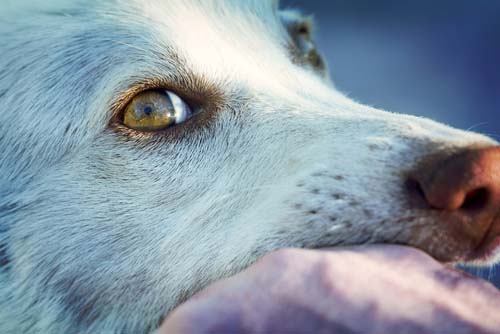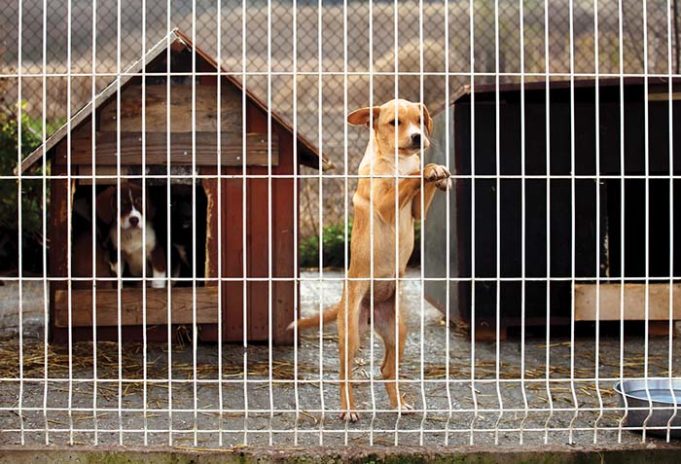More and more people adopt dogs and cats today, but somehow animal shelters are still always full. Did you ever wonder, how come? Why millions of dogs are in overcrowded shelters despite many people owning pets?
If you've ever visited an animal shelter or a dog rescue and asked the volunteers there, they will likely have different unforgettable dog rescue stories of how the pets end up in their care. We've asked around people working for animal rescue organizations, and they gave us these 13 most common reasons why dogs end up in shelters listed below.
ALSO READ: Thinking of Returning Your Dog? Here’s What You Can Do Instead
1. The dog has not been trained
Pet owners need to pour considerable time and energy to train their dogs. Puppies don't learn how to obey and become sociable without human guidance. They also need potty training and behavioral conditioning. Otherwise, problems emerge without some of the most essential dog training. Some pet owners, however, give up easily when it gets too frustrating and they surrender the dog to an animal shelter shortly thereafter.
2. The lost dog doesn't have a tag or microchip
A dog might accidentally escape and wander off, especially when anxious or excited. It will be harder to find or return the dog if it doesn't have a collar tag or microchip. Ideally, you have to put both microchip and collar on your dog in case the latter comes off. Having an identity tag is your dog's lifeline. A study showed that lost dogs with microchip raise their chances of being reunited with their owner by 52 percent.

3. The dog bites
The issue of aggression and dog biting ties with dog training. Dogs are animals and there's a number of reasons why the dog might display aggression, a number of them through no fault of the dog. However, when the owner refuses to deal with an aggressive dog properly through training or use of canine behaviorist, then the only recourse is to bring the dog to the shelter to prevent someone from seriously getting hurt.
4. The dog is ill
Research from the National Council on Pet Population Study and Policy showed that at least 7.4 percent of owners surrender their dogs in shelters to be euthanized because of old age or a terminal illness. Taking care of an animal whose health is failing cost a lot of money and time. Unfortunately, some pet owners don't have the patience for this anymore and it seems this is the most prudent thing for them to do since death is inevitable.
5. The owner becomes ill
In the same manner, the human may suddenly become too sick and can't rely on anyone else to take care of the dog. So, the dog becomes another shelter statistic. This is why pet advocates say that if you own a dog, you also have to plan and prepare for emergencies and incidents like this. You have to ensure that your dog will be in good hands in case something happens to you.

6. The family moves away
Relocating to a new house can become a problem for some pet owners if the new landlord won't allow pets. They probably could not find a family that would want to take their dog in, so they leave their pet in the care of shelters. In worst cases, they abandon the dogs in the old house. It's no secret that shelters receive reports of pet abandonment on a regular basis.
7. Someone in the family is allergic to dogs
At least 60 percent of households in America have a dog, which means that pet dander is mostly present in these homes. But pet dander is what triggers the allergies and its effects might be harder to manage for some people, hence they end up giving up their dogs in favor of their health.
8. Owners go through a life-changing experience
Divorce, a death in the family, a job loss, or the arrival of a new baby affects the dogs as much as the humans. The pet owner might decide to put the dog in a shelter if he or she is too overwhelmed to deal with anything else but these life-changing experiences.

9. The pets don't get along
Chaos might ensue if there are too many dogs or other animals in the house so the owner has to make a hard decision to surrender some of the dogs. That's why animal groups advocate for spaying or neutering your dogs to stop reproduction and prevent overpopulation. If you won't be able to properly take care of too many pets, you should definitely consider spaying and neutering.
10. It's just too expensive to take care of a dog
Not a lot of people realize that having a pet costs more money than they might expect. Pet owners need to pay for dog food, grooming and vet bills regularly. Dogs also need to have their crate, collars, leash, and other items. Some owners simply give up on the dog when they can't manage the cost for its care anymore.
RELATED: 80+ Ways to Save Money on Dog Expenses [Infographic]
11. The dog was in temporary care only
The person who found your dog might eventually surrender the animal to the shelter. Or, if you've temporarily asked a friend to look after your pet as you go through stuff in your life, he or she might have a change of heart and decide not to care for your dog anymore. So, these pets end up in the shelter since the ones that temporarily took them in cannot fully commit to the responsibility.

12. There's been a puppy mill raid
Many dogs end up in shelters after authorities raid illegally operating puppy mills. Unfortunately, puppy mills continue to thrive because people still buy from pet stores. The Humane Society estimates that there are at least 10,000 puppy mills in the U.S but only 2,500 have the license. Imagine how many dogs are bred in these illegal sites. There won't be enough shelters to take the dogs in if the authorities were to raid all of them.
13. The owner has no time for the dog
It might be sad to think that someone could give up a dog because they have no time to take care of it, but that’s a reality for many pets. Sometimes, people shop or adopt dogs on impulse without really considering the effort they have to put into dog care, how much time and money it takes.
Some of the reasons of why dogs end up in animal shelters listed above may anger animal lovers, activists and advocates but it won’t help anyone for us to judge other people’s actions. Instead, it’s best to focus our energy on the many ways you can help homeless pets and shelters by donating, fostering or volunteering, and adopting instead of buying. Educate your family and friends about responsible pet ownership and the plight of dogs at shelters – it might open their eyes to consider adopting one, too.













